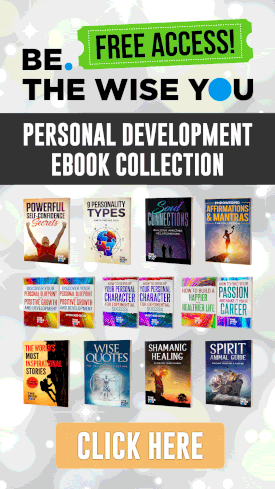We often think that brilliance and creativity emerge out of nowhere, a product of alignment of stars, a good mood, or perhaps natural talent. But are these beliefs based on reality? Let’s first clear the mystery that surrounds mastery of skills.
What’s Expertise/Mastery?
Expertise is defined as peak, exceptionally high, or elite performance in a particular domain or a given skill. One who’s achieved this high-level performance is referred to as a maven, master, virtuoso, genius, or prodigy. Develop your skills, An expert’s area of mastery can be anything from music, through sports, science, and mathematics, to any career path.
How the Most Skilled do Compared to the Rest of us
In complex jobs like sales and professional roles, research shows that 10 % at the top produce 80% more than the average people. When compared to the bottom 10%, they are 700% more productive!
But we all know rising to the top is never easy. One of the biggest hurdles to develop your skills and becoming an expert at something is the popular but ineffective learning models.
Whether you’re studying for exams or you want to be an excellent public speaker, here is how to become an expert in your field:
1. Are You in it for the Long Haul?
How far into the future do you envision yourself doing this? The answer to this question is probably the number one predictor of how well you will fare in whatever skill you’re hoping to develop your skills. Working on something for an extended period correlates to being good at it, but that’s beside the point. Making an upfront commitment is what makes all the difference.
Research shows that with the same time spent on practice, those with long-term goals and commitment do 400% better than those with only a short-term interest.
2. Focus on the Fundamentals
The hallmark of competency is being able to zero in on important information. Every skill has multiple components; trying to develop your skills all of them won’t produce the best results. Tim Ferris, the author of the bestselling book on mastery, The 4-hour Workweek, says, “You need to start with an 80-20 analysis. Ask yourself, which 20% of the concepts I need to learn will enable me to achieve 80% of my envisioned results.”
When Tim was learning chess from the Josh Waitzki, a chess champion whose life story informed the film ‘Searching for Bobby Fischer’, they didn’t start with mundane opening moves. Instead, they dove straight to the critical moves that apply to most of the interactions on the chessboard.
With that, Tim learned powerful principles that apply to various circumstances during a game, instead of rote memorization of the opening moves. And that helped him, a beginner, to hold his own against experienced players.
3. Simulate Real-Life Situations
As you train, your practice routine should be as similar to real-life contexts as possible. Research shows that you are better prepared, and you’re able to express your learned skills better when you learn in an environment that’s similar to the context in which you’ll get utilize your skills.
Are you preparing for an important presentation that you’ll give in front of an audience in a conference room? Then you’re better off simulating a similar experience during your practice.
4. Tap Into a Mentor’s Experience
Learning is an exercise in humility. You must first accept that there are people who are more skilled than you. Their superiority, though, is a function of experience and time, rather than privilege and preternatural talent.
The professor behind the research that’s popularly summed as the ‘10,000-hour rule, says, to narrow the gap between your skill level and that of the foremost experts in your field, mentorship is vital.
But merely finding an expert to help you is not enough. A good mentor doesn’t just care about the particular skill you’re learning; they also care about your overall goals. They are with you in the long run. It’s these kinds of relationships that lead to outsize results in terms of improvement in skills and future income and happiness.
Once you’ve found a mentor who’s committed to your success, it’s only natural that you’re respectful and humble. But you also need to question them. According to David Epstein, the author of the bestseller, The Sports Gene, those who thrive in school sports and those who go on to play on professional levels, have one distinguishing characteristic: they question their trainers.
Strategies for finding a mentor who’ll help you become an expert:
● Choose a mentor based on your inclinations and needs: For instance, the perfect choice can be someone who provides you with what your parents couldn’t give you – support, space to experiment, confidence, and direction.
● Embrace feedback: Good mentors will be honest about your weaknesses. Embrace the feedback. You will only improve through objective feedback and constructive criticism.
● Develop their ideas: As you learn new concepts from your mentors, tailor the insights to fit into your unique goals.
● Build a two-way relationship: Even as you learn from your mentor, you should also be eager to teach and influence them.
5. Practice Makes Perfect
You can’t become an expert overnight. It takes work and dedication for you to gain mastery in anything – research shows that it takes about 10,000 practice hours. You may not to slave for that much time depending on your subject, but you must still be willing to spend from hundreds to thousands of hours on the following:
● Studying – attending college, taking online courses, reading books, watching videos, attending training programs and seminars, or learning from experts in your field.
● Practicing – applying what you’re learning. For instance, if you’re an aspiring app developer, you must apply the concepts you’ve learned by creating apps on your own. By using what you learn, you dive much deeper into what you need to do to gain expertise in your field – Investigating and solving problems that can’t be covered through instruction and studying alone, and uncovering the kinks.
● Presenting – Documenting your findings. Create a journal, vlog, or blog of what you’ve learned so far. Speak to others at meetups or conferences on your struggles and solutions so that they can take lessons from you. Teaching is one of the most underrated steps in learning. It’s almost impossible to forget a concept that you’ve taught, and so teaching will hasten your journey to mastery.
6. Use Desirable Difficulty
Reviewing study material is a popular way of revising what you’ve already studied. But it’s also very ineffective.
Researchers refer to this as ‘the fluency illusion.’ Being able to recall at the moment doesn’t mean you will remember in the future. Desirable difficulty translates to, the more you strive to recall something, the more likely it’s to stick to your memory.
So don’t merely scan through what you’ve already learned. Instead, question yourself using flashcards like a medical student.
Learning is more durable and more in-depth when it’s effortful. Easy using ‘easy learning methods’ is like drawing in the sand, here one moment, swept by the waves the next moment. And, we’re not good judges of effective learning methods. When we’re going slower and learning feels effortful, we don’t feel productive. And so we shift to strategies that feel easy and pleasurable and therefore fruitful, but the gains from such strategies are temporary.
Research shows that revising material four times is less effective than reading once and then writing a summary. Whether you’re reading for an exam or practicing a skill or sport, make the process challenging.
7. Sleep
Without adequate sleep, your learning will be impaired. Research shows a correlation between the average amount of sleep and student grades. Another decade long study by the University of California’s Sara Mednick revealed that naps of an hour contain REM and slow-wave deep sleep.
People who learn in the morning – whether it’s partner recognition or words, understanding of the deeper structure or straight retention – do 30% better when they’ve had an hour-long nap before an evening test.
What’s the Biggest Benefit of Being an Expert in Your Craft?
You’ve taken all the right steps, you’ve practiced hard, and you’re now a master. What else are you? Happier!
When you’ve perfect to develop your skills in something, and you get to use your expertise often, the results aren’t just promotions or more wins on the chessboard, you’re also more contented!
Research shows that people who purposely exercise their strengths – skills they’ve mastered – daily, they become considerably happier for months. In a study involving 577 participants, those who used their expertise daily become less depressed and substantially happier than the control group.
And, their happiness levels remained high even a month later. The more you develop your skills, the more contented you become.
What Does it Take to an Expert at Something?
While the common assumption is that it’s intelligence that draws the line between experts and the mere mortals, research shows that mastery has more to with deliberate acquiring of skills than inborn abilities.
Sure, some people are born with some advantages like ready access to resources they need to reach mastery or physical abilities. But achieving expertise takes deliberate practice and effort, no matter what your inborn abilities are at the beginning.







